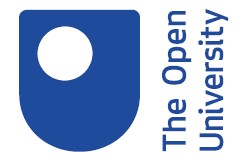Gurch Randhawa, Professor of Diversity in Public Health and Director of the Institute for Health Research (IHR) at the University of Bedfordshire, has spoken about the impact of pollution on local areas in a special climate crisis report by the BBC, as the COP26 UN Climate Change Conference continues.
Professor Randhawa was interviewed by BBC Look East on what is said to be Bedford’s ‘most polluted’ road – Prebend Street. In a 2020 Bedford Borough Council air quality report, although the town was mostly very good, this road was highlighted as a ‘hot spot’ where pollution continues to build up.
During his interview, he highlighted the issue of regional air pollution, with a particular focus on the town of Bedford, where ‘pockets’ of high levels of nitrogen dioxide can be found due to certain locations and aspects of the roads, such as junctions, roundabouts and pedestrian crossings which cause ‘standing’ traffic.
Speaking to the reporter, he said: “We know that poor air quality can impact upon people’s health in terms of respiratory illnesses and lung function, and our challenge is – how do we improve the environment around us?”
Professor Randhawa also addressed Bedford Borough Council’s plans to work with Sustrans – the charity behind the National Cycle Network – to improve cycle networks and encourage people to use their cars less. However, he warned that roads need to be made safe for residents to cycle on.
Speaking while standing on Prebend Street in Bedford, Professor Randhawa added: “It’s very easy for people to say we should all cycle more and walk more, but if you take this road for example, it’s just simply not wide enough (for both bikes and cars). So, although people are saying ‘use your cars less, cycle more, walk more’, it needs to be safe to do so.”









